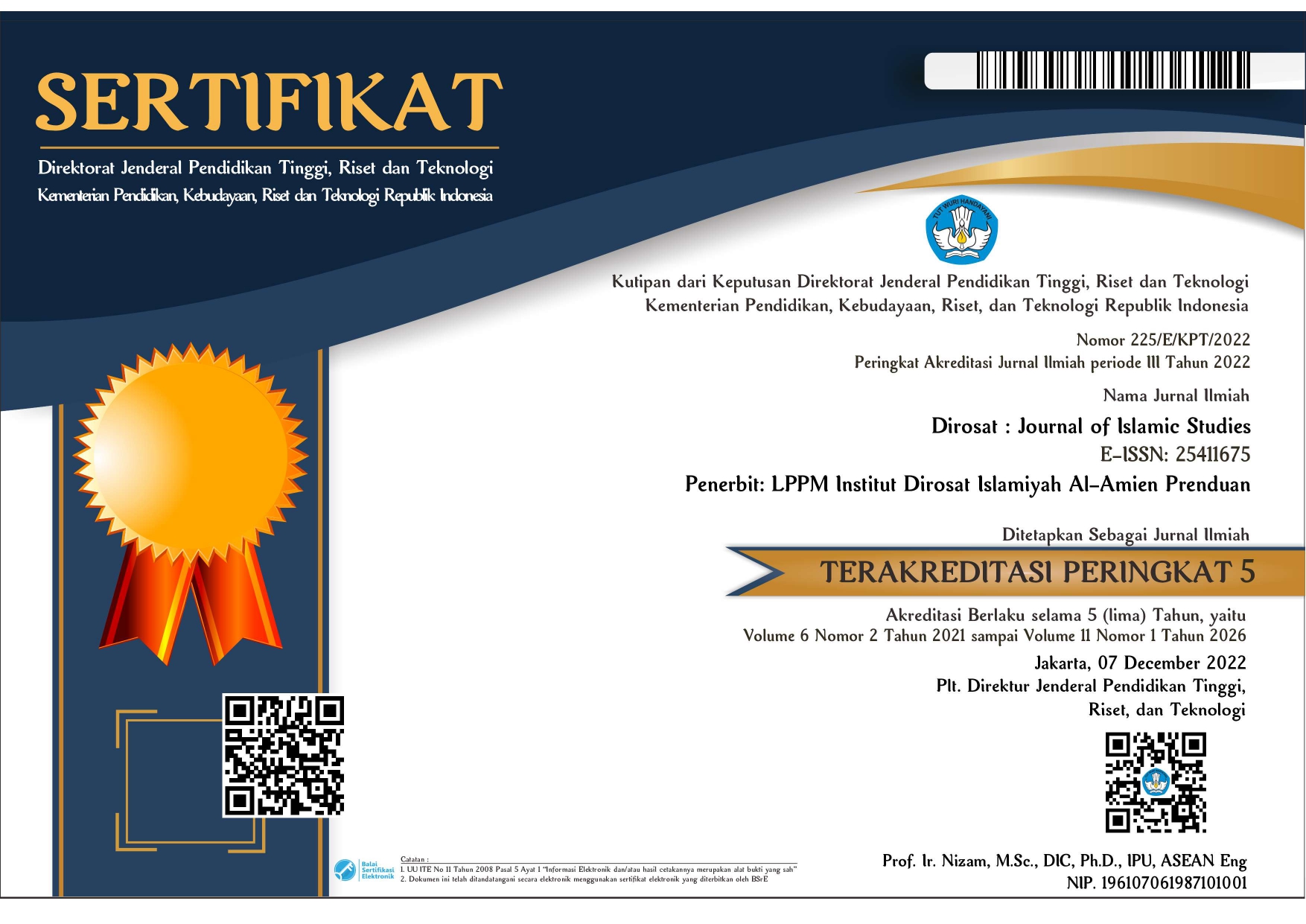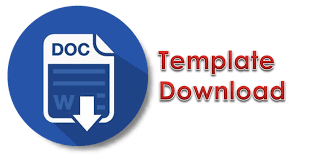PROBLEMATIKA PEMBELAJARAN BAHASA ARAB DI INDONESIA DAN IMPLIKASINYA TERHADAP PENGEMBANGAN KURIKULUM BAHASA ARAB
Abstract
Abstract: One of the components in the educational system is the curriculum. The curriculum is a tool to achieve educational goals and at the same time as a guide in the implementation of learning activities to achieve educational goals. Similarly, islamic education, which is a process, requires careful planning and can deliver the process to its expected goals. Between the goals and the program of Islamic education itself there must be a conformity. The goals to be achieved must be depicted in the program contained in the curriculum, even the program that reflects the desired direction and goals in the Process of Islamic education. Arabic Language Education (PBA) is a benchmark for Islamic institutions, towards the development of science in the Islamic style as well. So any effort to direct students to the desired goal is always faced with many problems that rub against the culture and learning techniques in the field. Therefore, there must be several studies related to the above problems. This research is a type of library research with a qualitative approach. As for the data sources of this study, there are 2 data sources, namely primary data sources from the books of experts and Professors in Learning Arabic and their printed curriculum. Meanwhile, primary data sources from research articles that have been published in research journals, papers and essays on the blogs of authors, magazines, newspapers, recordings and videos as well as other supporting primary sources. This research aims to examine the problems of Arabic language learning and its implications for the development of arabic language education curriculum in Indonesia. The results of this study are that the problem of learning Arabic in Indonesia lies in the revelance of the curriculum, learning methods and strategies, limitations of learning media, professionalism of teachers, tutors and instructors, lack of information technology concentration, pressures on the flow of language globalization, as well as the tug-of-war between Fushhah and Amiyah languages
Â
Â
Keywords
References
Hamalik, Oemar, Dasar-dasar Pengembangan Kurikulum, Bandung : PT. Remaja rosda Karya, 2007.
Hamid, Abd, Pembelajaran Bahasa Arab , pendekatan, metode, strategi, materi, dan media, Malang : UIN Malang Press, 2008.
Hermawan, Acep, Metodologi Pembalajaran Bahasa Arab, Bandung, PT. REMAJA ROSDAKARYA, 2011.
Nasution, Asas-asas kurikulum, Jakarta : PT. Bumi Aksara, 2003.
Nuha, Ulin, Metodologi Super Efektif Pembelajaran Bahasa Arab, Jogjakarta : DIVA Press, 2012.
Nurgiantoro, Burhan, Dasar-dasar Pengembangan Kurikulum Sekolah - sebuah pengantar teoritis dan pelaksaaan, Yogyakarta : BPFE, 2015.
Rusman, Manajemen Kurikulum, Jakarta : Rajawali Press, 2009.
http://arabionline.blogspot.com/2011/12/tantangan-dan-prospek-pendidikan-b-arab.html Oleh :Muhbib Abdul Wahab (Penulis Buku Metodologi Pembelajaran Bahasa Arab)
http://arabionline.blogspot.com/2011/12/tantangan-dan-prospek-pendidikan-b-arab.html. Saiful Mustofa dosen UIN Maliki Malang
http://arabionline.blogspot.com/2011/12/prospek-dunia-kerja-lulusan-pba.html Oleh: Zainal Arifin Ahmad(Ketua Jurusan PBA Fakultas Tarbiyah UIN Sunan Kalijaga)
http://arabionline.blogspot.com/2012/03/pesantren-tradisional-akar-penyebaran.html. Moch. Sony Fauzi ( Dosen Bahasa dan Sastra Arab UIN Maliki Malang)
DOI: 10.28944/dirosat.v7i1.699
Refbacks
- There are currently no refbacks.

This work is licensed under a Creative Commons Attribution-NonCommercial-ShareAlike 4.0 International License.








